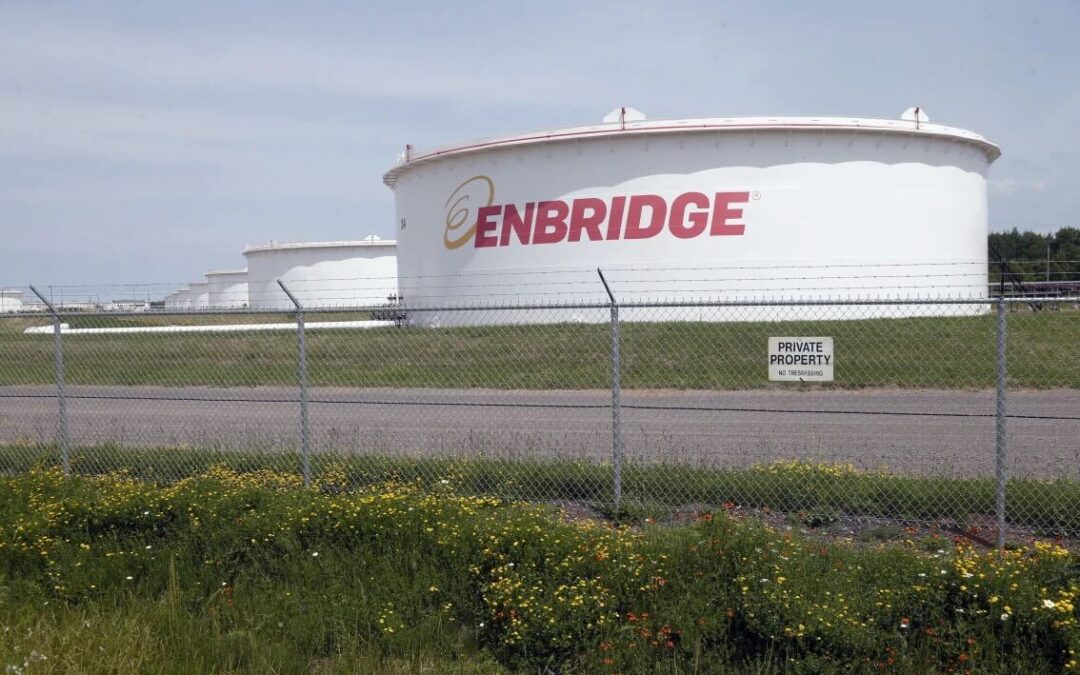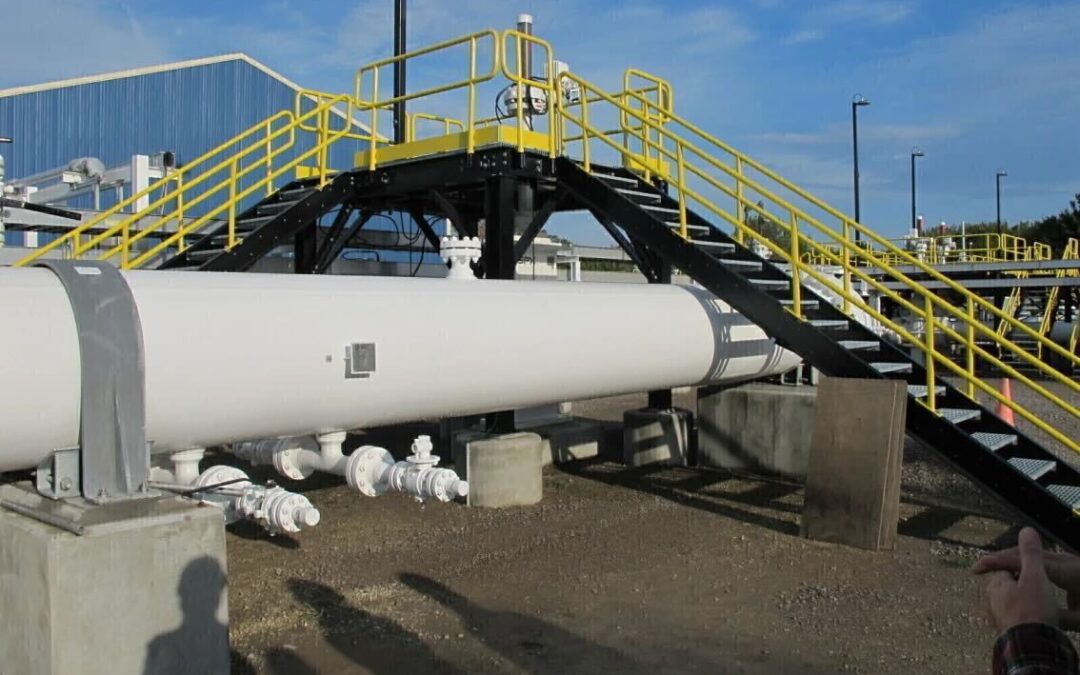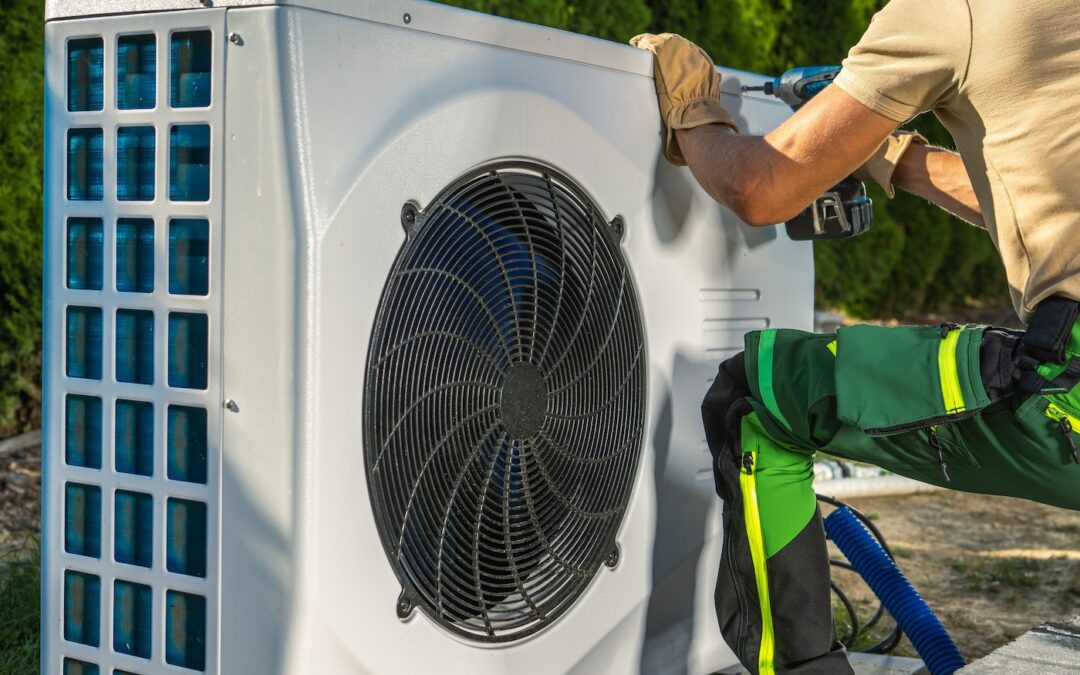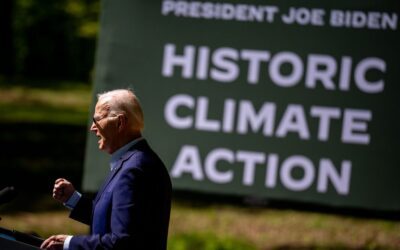
FILE - Former Wisconsin Lt. Gov. Mandela Barnes speaks with co-owner Jessica Jones as he toured the Giant Jones Brewery on July 21, 2021, in Madison, shortly after launching his US Senate campaign. Barnes now heads a group that connects Wisconsinites to resources available through the Inflation Reduction Act. (AP Photo-File/Scott Bauer)
The one-time head of the governor’s climate change task force now helps connect Wisconsinites to historic levels of funding for energy efficiency and combating climate change—”to make sustainable attainable.”
President Joe Biden’s Inflation Reduction Act invests $370 billion over the next several years to improve energy efficiency, reduce greenhouse gasses, and create jobs—but that only works if the funds get into the hands of people who make the equipment, hire the installers, make decisions for their businesses, or pull the trigger on their own home improvements. That’s where former Lt. Gov. Mandela Barnes comes in.
As president of a new group, Forward Together Wisconsin, Barnes is using his previous experience as the leader of Gov. Tony Evers’ Task Force on Climate Change to help connect Wisconsinites to information and funding. The work will be done statewide but with an emphasis on communities that might otherwise be left behind as more experienced groups, businesses, and people pursue the dollars and tax credits.
“Many folks don’t know what the Inflation Reduction Act is,” Barnes told UpNorthNews, “and have zero idea about how it impacts them. We’re trying to close that access gap.”
Barnes is acknowledging an often-overlooked piece of the puzzle when officials try to create good public policy: However well-intentioned, good acts mean nothing if the people who benefit from them don’t know about them. Democrats still wrestle with old memories of how voters in 2010 said they did not approve of the just-passed Affordable Care Act, yet they supported each element in the bill as it was explained to them separately.
Taking that lesson to the Inflation Reduction Act, Barnes’ group is engaged in public relations promotion of the law that ranges from mass media to door-to-door canvassing.
“I started Forward Together Wisconsin as an organization to assist with the implementation of the Inflation Reduction Act,” Barnes said. “We’ve taken a multi-pronged approach in this one. We’ve been knocking on doors, talking to folks right at their doorstep about the incentives that they qualify for, things they may not have realized or even thought about—ways to improve efficiency in their own homes and how to save money to actually do that.”
Another part of the group’s outreach includes school districts, where tight budgets could use lower energy bills if the up-front costs for things like solar panels or electric school buses weren’t prohibitive.
“We’re getting ready to kick off our Green Schools Initiative,” Barnes said, “helping out schools, connecting them to the resources they may not have been aware of, especially the lower income school districts that may not have the business officers with the capacity to be able to apply for some of these grants or to research funding opportunities.”
“So to put it very plainly, Forward Together Wisconsin operates to make sustainable attainable for folks.”
The Biden administration and grassroots efforts like the one in Wisconsin will have a focus on making sure help and opportunities come to communities and populations often hit hardest by the impacts of a changing climate and slowest to recover from economic downturns—high-poverty regions, communities of color, rural areas, industrial sites, and indigenous populations.
“There is this commitment from the Biden-Harris administration to make sure that resources flow equitably to communities,” Barnes said. “Think about how many children are impacted by air quality as Beloit is, as Milwaukee is, communities all across the state of Wisconsin. The opportunities are endless. Opportunities that I hope everybody can think about—getting to a place to make sure that we are leading a just transition on those air quality issues.”
Barnes sees the Inflation Reduction Act as the vehicle (electric, in this metaphor) to bypass obstacles put in place by Republicans before and after his time on the climate task force.
“The frustrating part about it,” Barnes said, “is that so many of the recommendations of the task force were left up to legislative approval. And at this point, we don’t have a Legislature that seems keen on approving any sort of climate recommendations. This one thing that, you know, the right wing always says: This is going to cost us money. How much is this going to cost? Well, this is an opportunity for us to generate resources, generate revenue, put money right into hardworking Wisconsinites pockets, and to also create a new generation of hard working Wisconsinites.”
“But the work is too important for us to just forget about. It’s going to take some outside help to make that happen.”
Support Our Cause
Thank you for taking the time to read our work. Before you go, we hope you'll consider supporting our values-driven journalism, which has always strived to make clear what's really at stake for Wisconsinites and our future.
Since day one, our goal here at UpNorthNews has always been to empower people across the state with fact-based news and information. We believe that when people are armed with knowledge about what's happening in their local, state, and federal governments—including who is working on their behalf and who is actively trying to block efforts aimed at improving the daily lives of Wisconsin families—they will be inspired to become civically engaged.


Enbridge pipeline spills 70,000 gallons of oil in Wisconsin
OAKLAND, Wis. (AP) — Roughly 70,000 gallons (264,978 litres) of oil from a pipeline spilled into the ground in Wisconsin, officials said. The...

Wisconsin agency issues first round of permits for Enbridge Line 5 reroute around reservation
MADISON, Wis. (AP) — Enbridge’s contentious plan to reroute an aging pipeline around a northern Wisconsin tribal reservation moved closer to reality...

From the top: What is this Inflation Reduction Act that’s so important to the presidential election?
It’s part of President Biden’s legislative agenda—the most productive in generations, yet few Americans know all the details of how it improves...

Here’s how to lower your home’s energy bill under the Inflation Reduction Act
It begins with assessing your home’s current energy use, planning improvements, then getting connected to the credits and rebates that can create...





